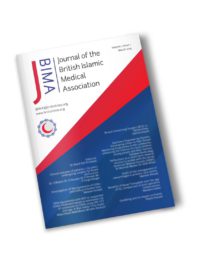
Introduction:
Communication impairments post Stroke can have devastating impacts on psychological, social and emotional wellbeing. For those that cannot access Speech and Language Therapy (SLT) services due to cultural or language barriers, this can leave them feeling further isolated. A gentleman diagnosed with Aphasia, Apraxia and Dysarthria following his stroke expressed wishes around learning to pray again, in Arabic. Due to gaps in services, he was privately offered a therapy programme adapting existing SLT techniques and resources to help him achieve his goals.
Methods:
An assessment was conducted in the patient’s home and goal negotiation took place with the individual, therapist and family. A therapy plan was devised adapting techniques such as articulation practice, script training, minimal pair work and naming therapy, using resources that were culturally appropriate and related to his goals; e.g. involving passages from the Quran and utilising audio recordings from his local Imam. The individual and family reflected with the therapist throughout the programme and gave feedback on the suitability of this type of therapy and suggestions were incorporated. Goals were reviewed at the end of the period.
Results:
The individual was able to resume his role in the Mosque as the caller to prayer and was able to recite the passages for the five daily prayers independently again. Family reported improved mood, confidence and engagement throughout. He still had difficulty independently reading Arabic accurately from the Quran.
Outcomes
Following this, a project in collaboration with the Greater Manchester Neurorehabilitation and Integrated Stroke Delivery Network took place. The project involved producing a patient story where the individual and his son reflected on their experiences and a webinar was delivered on Cultural Awareness in Stroke and Neurorehabilitation. The aims were to increase the awareness of the importance of diverse cultures and values within the workplace, to recognise the importance of cultural and value-based goal setting, and to understand how the knowledge of these values can shape stroke and neuro-rehabilitation services and improve patient care. Feedback from the webinar was positively rated.

